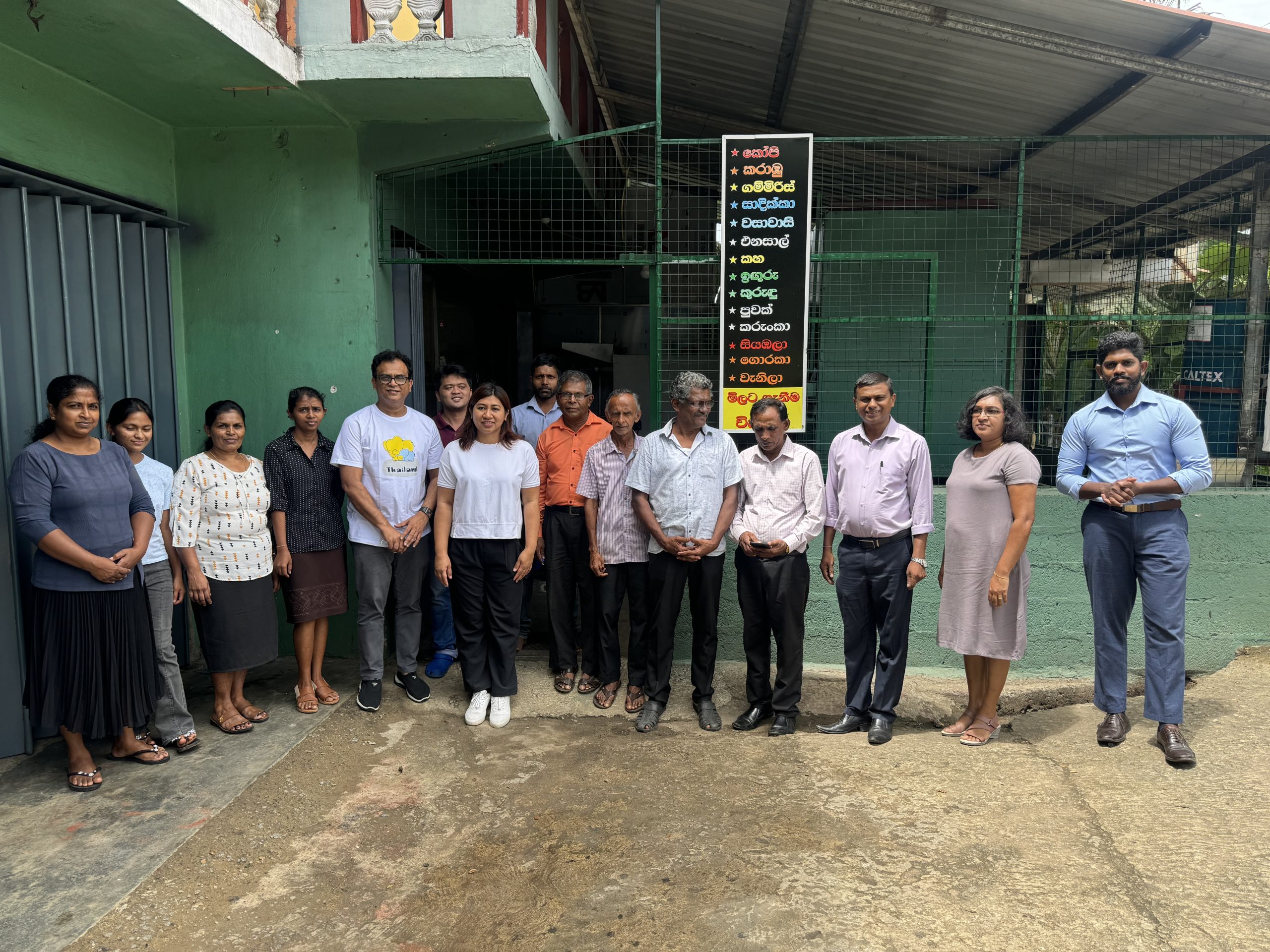Located in Anggamana Village, Central Province, Sri Lanka, the Angammana Sanasa Society has been serving farmers for over 39 years, evolving into a strong cooperative with 1,200 members, including 175 farmers—90 of whom are women and 55 are youth. Established in 1958 with just 41 members contributing shares worth LKR 100 (USD .34) each, the cooperative has significantly expanded its assets, reaching 400 lakhs (USD 690,000) between 2013 and 2022. In 2023, the cooperative collaborated with SANASA, government officials, and policymakers to develop a comprehensive business plan, ensuring sustainable growth and market competitiveness. To maintain active status, members are required to deposit a minimum of LKR 300 (USD 1) per month.
A major breakthrough came in June 2024 with the cooperative’s investment in a drying machine valued at 28 lakhs (USD 9,500). This machine revolutionized their pepper processing, replacing traditional sun-drying methods and allowing them to convert up to 7,000 kilograms of raw pepper into 2,300 kilograms of dried pepper. By strategically holding stocks until market prices peak, the cooperative maximizes profitability for its members.
The cooperative has strengthened its market presence through partnerships with Sanasa Green Mart and the operation of a roadside retail sales center. It also aims to diversify its product offerings by venturing into turmeric processing, following government-led training sessions. Future plans include increasing active farmer membership to 300, implementing capacity-building programs, and expanding into other high-demand spices to align with market trends and community needs.










Revenue Allocation:
- Dividends and Profits: 50%
- Contribution to SANASA Society: 10%
- Reinvestment in Business Capital: 40%
The cooperative’s strengths include:
- Members can access financial support from SANASA Bank, receiving loans of up to LKR 25,000 (USD 85) for farm activities such as tilling, fertilizing, and pruning.
- Government-backed training programs help farmers improve crop yields and adopt sustainable practices.
- The introduction of the drying machine has allowed members to earn dividends, improving their incomes and promoting better farm management.
- A well-positioned retail outlet enhances local consumer access to cooperative products.
- The cooperative holds a stock of 1,775 kilograms of pepper, strategically waiting for prices to rise to at least LKR 2,300 (USD 8) per kilogram.
The challenges faced by the cooperative include:
- Improved bookkeeping and record-keeping systems are needed for better financial management.
- Farmers rely on experience rather than technology to measure moisture levels, creating inconsistencies in product quality.
- The cooperative lacks QR code tracking, limiting product traceability.
- Expanding market access and increasing storage capacity are critical for scaling up operations.
- Members have expressed the need for additional seedlings to diversify and expand crop production.
With a strong foundation and ongoing investments in value-added processing, the Angammana SANASA Society is poised to further enhance its economic impact, ensuring greater profitability and sustainability for its farmer members.
The Angammana Sanasa Society is one of the partner organizations supported by the APFP-FO4A program, which is implemented in Sri Lanka by SANASA International.
The Asia Pacific Farmers’ Programme (APFP)- Support to Farmers’ Organizations for Asia (FO4A) aims to contribute to an enabling environment for rural poverty reduction, through instrumental support to rural smallholders and their organizations at national, sub-regional, and regional levels in Asia and the Pacific. The objective is that by the end of the program, farmer organizations are professionally capacitated to provide sustainable demand-driven (business and technical) services to their members and engage in effective policy dialogue for the improved livelihoods and incomes of smallholder farmers/producers in Asia and the Pacific. APFP-FO4A is implemented in Cambodia, Indonesia, Laos, Myanmar, Philippines, Thailand, Vietnam, Bangladesh, India, Nepal, Pakistan, Sri Lanka, Mongolia, and China. APFP-FO4A benefits around 25 million individuals–of which 4.5 million are women and 4 million are youth. APFP is financed by the International Fund for Agricultural Development (IFAD) and FO4A is co-financed by the European Union (EU) and IFAD.
APFP-FO4A is implemented by the consortium Asian Farmers’ Association for Sustainable Rural Development (AFA) and La Via Campesina (LVC).

Comments are closed